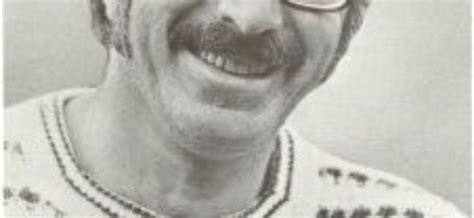A Quote by Samuel Johnson
Every man, however hopeless his pretensions may appear, has some project by which he hopes to rise to reputation; some art by which he imagines that the attention of the world will be attracted; some quality, good or bad, which discriminates him from the common herd of mortals, and by which others may be persuaded to love, or compelled to fear him.
Related Quotes
Every man is prompted by the love of himself to imagine that he possesses some qualities, superior, either in kind or degree, to those which he sees allotted to the rest of the world; and, whatever apparent disadvantages he may suffer in the comparison with others, he has some invisible distinctions, some latent reserve of excellence, which he throws into the balance, and by which he generally fancies that it is turned in his favour.
A man of meditation functions differently. Whatever profession he chooses, it does not matter. He will bring to his profession some quality of sacredness. He may be making shoes, or he may be cleaning the roads, but he will bring to his work some quality, some grace, some beauty, which is not possible without sam?dhi.
What a man does, that he has. What has he to do with hope or fear? In himself is his might. Let him regard no good as solid but that which is in his nature, and which must grow out of him as long as he exists. The goods of fortune may come and go like summer leaves; let him scatter them on every wind as the momentary signs of his infinite productiveness.
The man who barely abstains from violating either the person, or the estate, or the reputation of his neighbours, has surely very little positive merit. He fulfils, however, all the rules of what is peculiarly called justice, and does every thing which his equals can with propriety force him to do, or which they can punish him for not doing. We may often fulfil all the rules of justice by sitting still and doing nothing.
Every deviation from the rules of charity and brotherly love, of gentleness and forbearance, of meekness and patience, which our Lord prescribes to his disciples, however it may appear to be founded on an attachment to Him and zeal for His service, is in truth a departure from the religion of Him, "the Son of Man," who "came not to destroy men's lives, but to save them.
The word which is best said came nearest to not being spoken at all, for it is cousin to a deed which the speaker could have better done. Nay, almost it must have taken the place of a deed by some urgent necessity, even by some misfortune, so that the truest writer will be some captive knight, after all. And perhaps the fates had such a design, when, having stored Raleigh so richly with the substance of life and experience, they made him a fast prisoner, and compelled him to make his words his deeds, and transfer to his expression the emphasis and sincerity of his action.
I have not loved the world, nor the world me, but let us part fair foes; I do believe, though I have found them not, that there may be words which are things, hopes which will not deceive, and virtues which are merciful, or weave snares for the failing: I would also deem o'er others' griefs that some sincerely grieve; that two, or one, are almost what they seem, that goodness is no name, and happiness no dream.
Nothing is more unjust, however common, than to charge with hypocrisy him that expresses zeal for those virtues which he neglects to practice; since he may be sincerely convinced of the advantages of conquering his passions without having yet obtained the victory as a man may be confident of the advantages of a voyage or a journey, without having courage or industry to undertake it, and may honestly recommend to others those attempts which he neglects himself.
When death strikes down the innocent and young, for every fragile form from which he lets the panting spirit free, a hundred virtues rise, in shapes of mercy, charity, and love, to walk the world and bless it. Of every tear that sorrowing mortals shed on such green graves, some good is born, some gentler nature comes.
The act of writing bears something in common with the act of love. The writer, at his most productive moments, just flows. He gives of that which is uniquely himself. He makes himself naked, recording his nakedness in the written word. Herein lies some of the terror which frequently freezes a writer, preventing him from producing. Herein, too, lies some of the courage that must be entailed in letting others learn how one has experienced or is experiencing the world.
He that would travel for the entertainment of others, should remember that the great object of remark is human life. Every Nation has something peculiar in its Manufactures, its Works of Genius, its Medicines, its Agriculture, its Customs, and its Policy. He only is a useful Traveller, who brings home something by which his country may be benefited; who procures some supply of Want, or some mitigation of Evil, which may enable his readers to compare their condition with that of others, to improve it whenever it is worse, and whenever it is better to enjoy it.

































